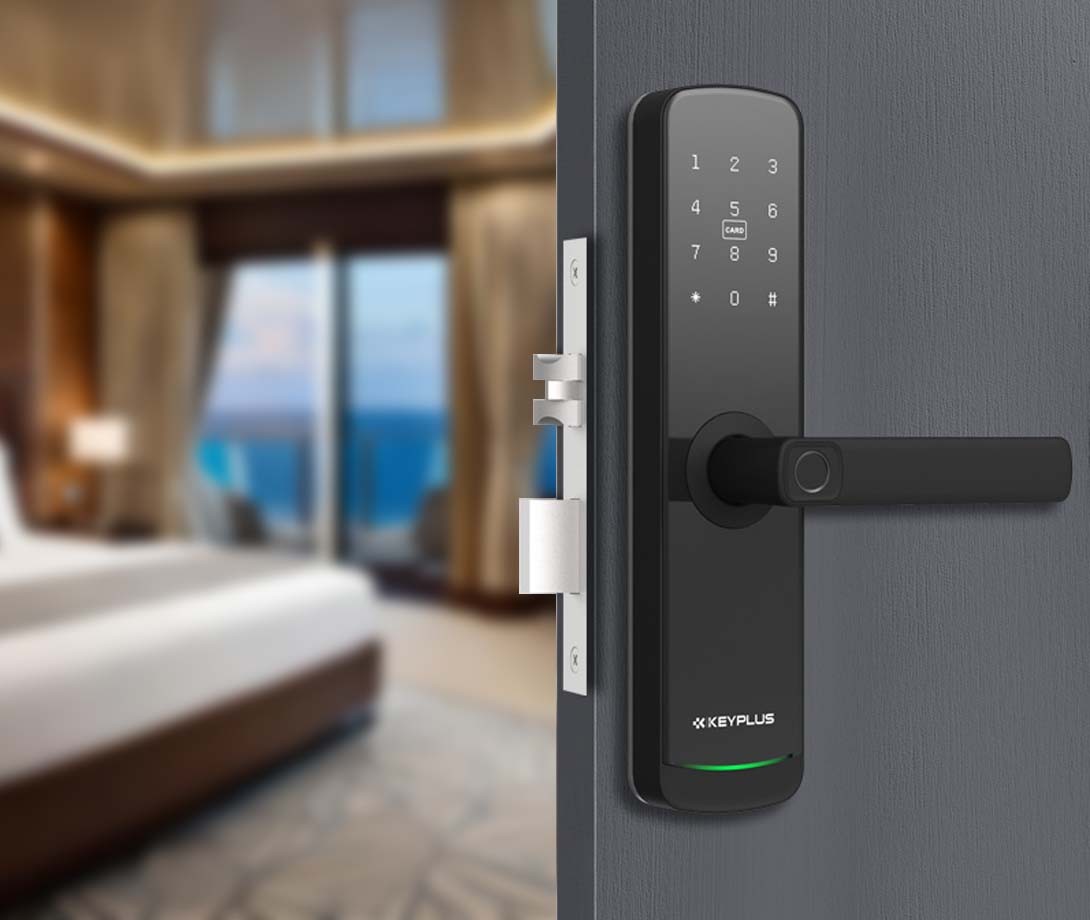Are Bluetooth Door Locks Secure?
As smart home technology advances, Bluetooth door locks have become a popular alternative to traditional keys. These locks allow users to unlock doors using their smartphones, key fobs, or even voice commands—eliminating the need for physical keys.
But a critical question remains: Are Bluetooth door locks truly secure?
In this article, we’ll explore:
How Bluetooth door locks work
Their security strengths and weaknesses
Potential hacking risks
Best practices to enhance security
By the end, you’ll have a clear understanding of whether Bluetooth smart locks are a safe choice for your home.
1. How Do Bluetooth Door Locks Work?
Bluetooth-enabled smart locks use short-range wireless technology (Bluetooth Low Energy, or BLE) to communicate with:
- Smartphones (via a dedicated app)
- Key fobs (for backup access)
- Smart home hubs (like Amazon Echo or Google Nest)
Key Features of Bluetooth Locks:
- Proximity-based unlocking (auto-unlock when you approach)
- Temporary access codes (for guests or service workers)
- Remote management (if paired with Wi-Fi or a hub)
- Battery-powered (with low-battery alerts)
Unlike Wi-Fi smart locks, Bluetooth locks do not require an internet connection, reducing some cybersecurity risks but introducing other vulnerabilities.
2. Security Strengths of Bluetooth Door Locks
A. No Internet Dependency = Fewer Remote Hacking Risks
Since Bluetooth operates on short-range signals (typically 10-30 feet), hackers cannot attack it remotely like they can with Wi-Fi locks.
B. Encryption Protects Communication
Most modern Bluetooth locks use AES-128 or AES-256 encryption, making it difficult for attackers to intercept and decode signals.
C. No Physical Key = No Lock Picking
Many Bluetooth locks are keyless, eliminating the risk of lock picking or bumping—a common issue with traditional deadbolts.
D. Tamper Alerts & Auto-Locking
Some advanced models feature:
- Tamper detection (alerts if someone tries to force the lock)
- Auto-locking (locks after a set time to prevent forgetfulness)
3. Potential Security Risks of Bluetooth Locks
Despite their advantages, Bluetooth locks are not foolproof. Here are the main security concerns:
A. Bluetooth Hacking (Spoofing & Relay Attacks)
- Spoofing Attacks: Hackers can mimic an authorized device to trick the lock.
- Relay Attacks: Attackers extend the Bluetooth signal’s range using relay devices, allowing them to unlock doors from a distance.
Example: In 2019, researchers demonstrated how some Bluetooth locks could be unlocked from 100+ feet away using signal amplification.
B. Weak or Outdated Encryption
Some older or cheaper Bluetooth locks use weak encryption, making them easier to breach.
C. Smartphone Vulnerabilities
If your phone is lost, stolen, or hacked, an attacker could gain access to your lock.
D. Power Failures & Lockouts
- If the battery dies, you may be locked out (unless there’s a backup key or power source).
- Extreme cold can drain batteries faster.
4. How to Make Bluetooth Locks More Secure
Choose a Reputable Brand
Stick with well-known brands like:
- Keyplus
These companies invest in strong encryption and regular firmware updates.
Enable Two-Factor Authentication (2FA)
If your lock supports it, always enable 2FA for an extra security layer.
Disable Auto-Unlock in High-Risk Areas
Auto-unlock is convenient but risky in crowded places (apartment buildings, offices).
Keep Firmware Updated
Manufacturers release updates to patch security flaws—always install them promptly.
Use a Secondary Lock for Added Security
For maximum protection, pair your Bluetooth lock with a traditional deadbolt.
5. Bluetooth vs. Wi-Fi vs. Traditional Locks: Which Is Safest?
| Feature | Bluetooth Lock | Wi-Fi Lock | Traditional Lock |
|---|---|---|---|
| Remote Access | Limited (short-range) | Yes (anywhere) | No |
| Hacking Risk | Medium (relay attacks) | High (remote hacking) | Low (physical attacks) |
| Internet Required? | No | Yes | No |
| Encryption | AES-128/256 | AES-128/256 | None |
| Best For | Apartments, small homes | Smart homes, rentals | High-security needs |
Verdict:
- Bluetooth locks are more secure than Wi-Fi locks against remote hacking but less secure than high-end traditional deadbolts.
- For optimal security, use a Bluetooth lock + a physical deadbolt.
6. Are Bluetooth Locks Worth It? Final Thoughts
Pros:
No physical keys to lose
Strong encryption (if using a reputable brand)
Convenient for keyless entry
Cons:
Vulnerable to relay attacks
Dependent on battery life
Some models lack advanced security features
Final Recommendation:
If you want a convenient, keyless entry system, Bluetooth locks are a good choice—but only if you follow security best practices. For maximum safety, combine them with a traditional deadbolt and choose a high-quality brand.
Would You Trust a Bluetooth Door Lock?
While no lock is 100% unhackable, Bluetooth smart locks offer a solid balance of convenience and security—as long as you stay informed and take precautions.
Would you install one in your home? Let us know in the comments!
Post time: May-30-2025


